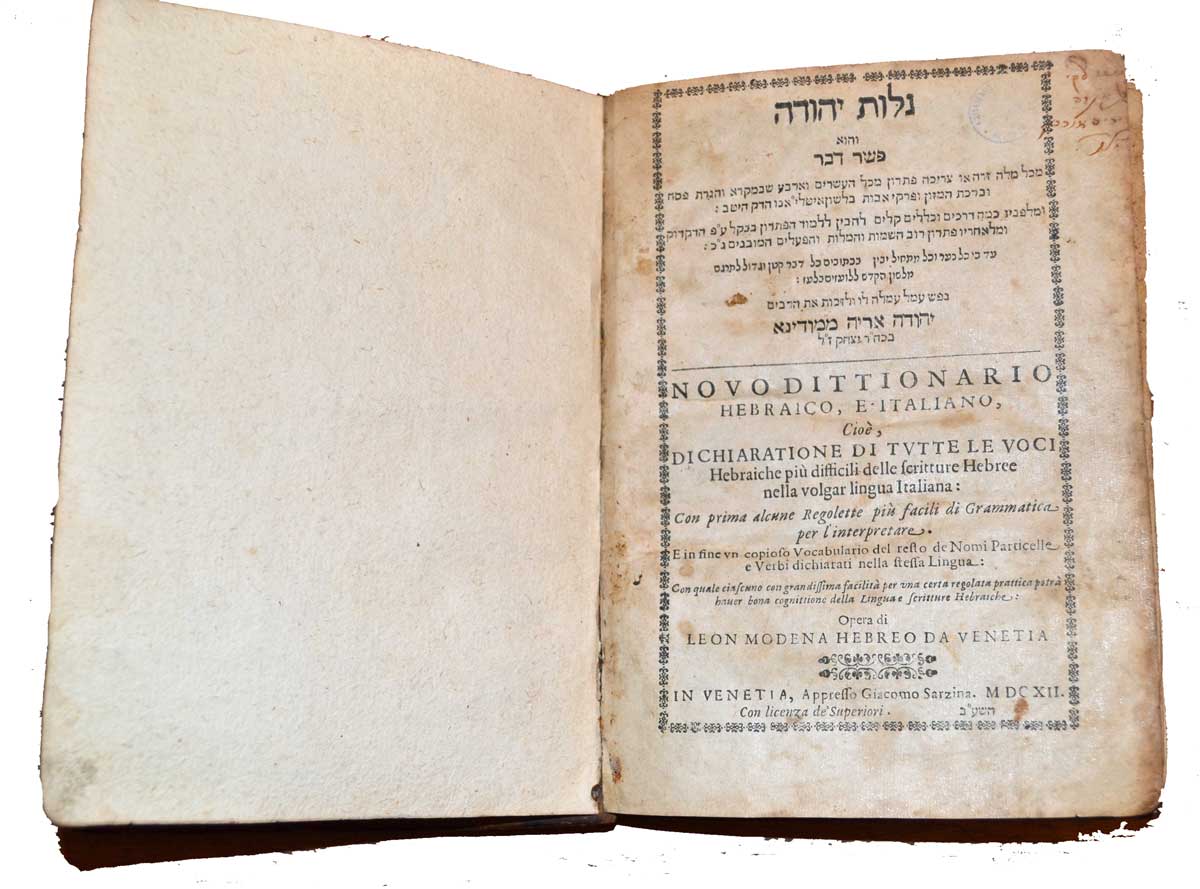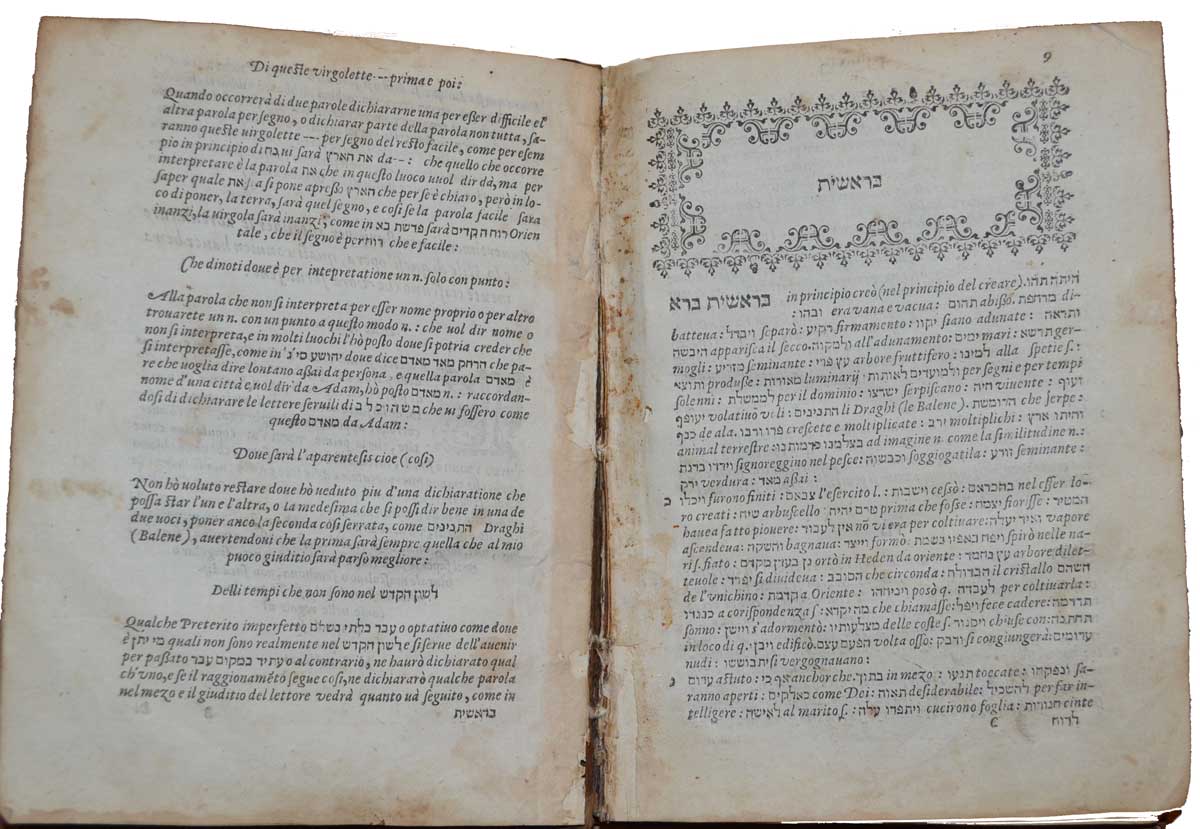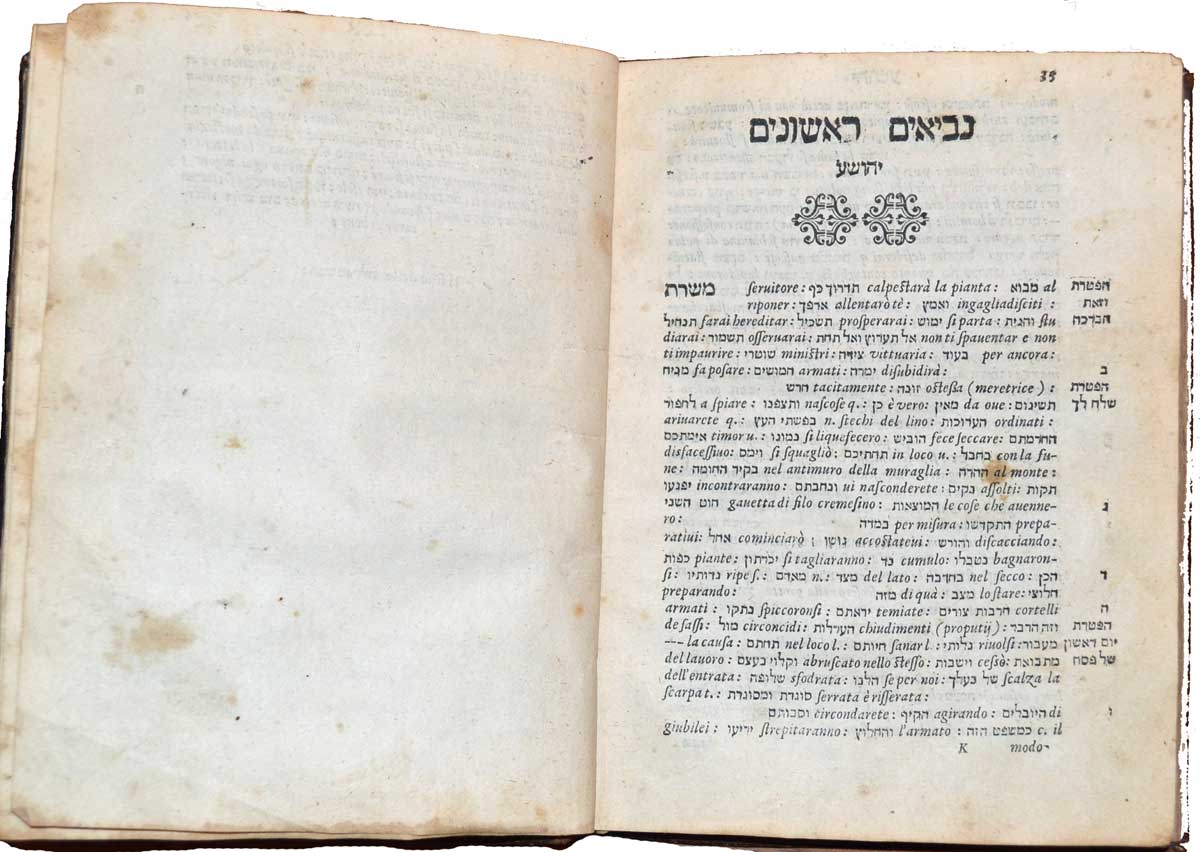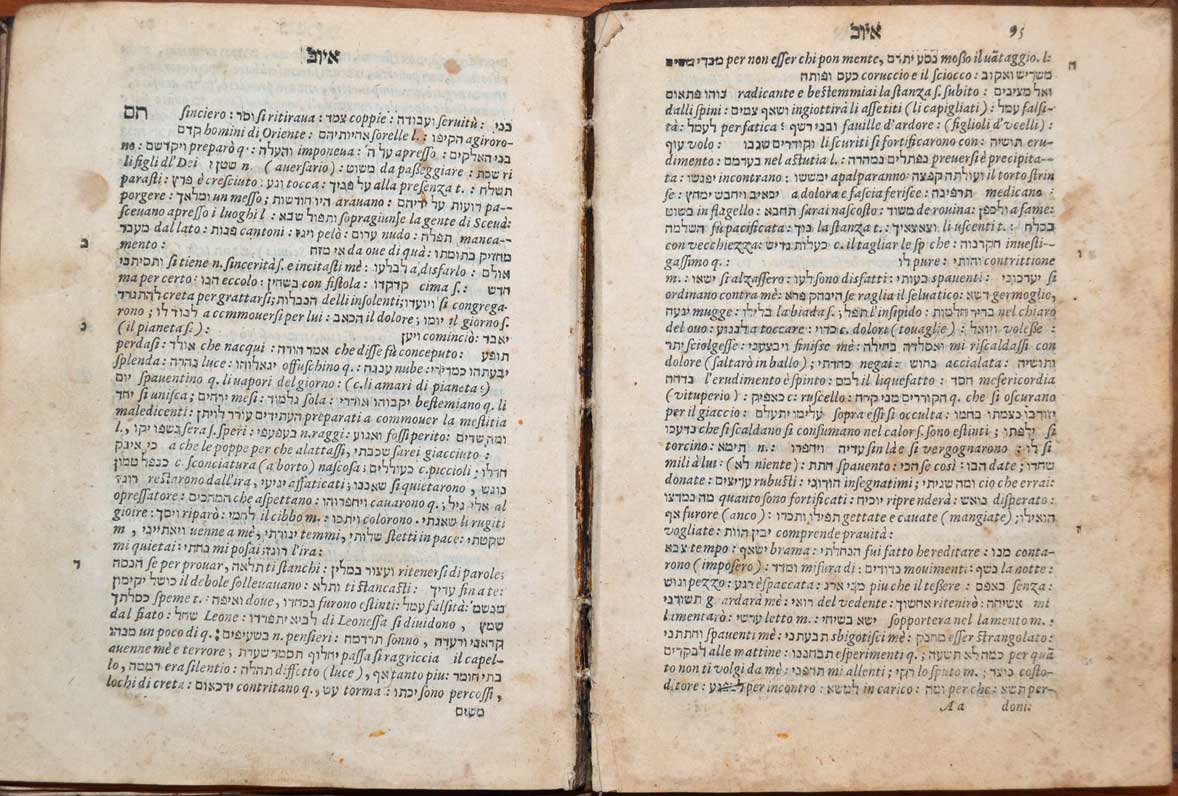Leone Modena, Novo Dittionario Hebraico, e Italiano, cioè dichiaratione di tutte le voci Hebraiche più difficili delle scritture Hebree nella volgare lingua italiana, Venice at James Sarzina, 1612. 353, 358, 360, 361, 672, 759, 760, 790
Galut Yehudah (Novo dittionario ebraico et italiano) is a dictionary with transactions of difficult rules, organized in a complete program to make students proficient so that they can read and understand the Bible.
The title, Exiles of Yehudah, Jeremiah 24:5, 28:4, 29:22), can be understood as a personal statement, referring to when Modena resided in Ferrara and Florence, at which time he began to work on this book, or as referring to the general Jewish condition, a people in exile, a situation that has caused them, as he observes in the introduction, to forget the Hebrew language.
Both Howard Adelman and Mark Cohen suggest that among Modena’s intentions in writing Galut Yehudah, was an attempt to overcome the Church prohibition against translating the Bible into Italian.
The first edition, originally sold at three lire, was later priced at ten lire because no copies remained. It was, as a result, republished, this time sponsored by Joseph Foa. Modena observed in his diary that Foa was not particularly wealthy and he had to go to Padua to supervise the completion of the work, remaining there for eight days.
The title page has Hebrew text and below it, Italian text. The Hebrew text states that Galut Yehudah is “the meaning of words” (Ecclesiastes 8:1) that require explanation throughout the Bible, Birkhat ha-Mazon (grace after meals), the Pesach Haggadah, and Pirkei Avot in Italian…: In it are many grammatical rules that make it easy to learn the meanings… Modena goes on to explain and justify his efforts, followed by a lengthier Italian introduction (L’autore all benigni lettori) and basic rules of grammar (Breve Regolette di Grammatica per l’interpretar corretto).
The text of Galut Yehudah follows the order of the Bible and concludes with the Pesach Haggadah and Pirkei Avot. Also included are portions of prayers, concluding with bilingual translation of terms. The Galut Yehudah has a supplement entitled Pi Aryeh (Raccolta delle voci rabbiche non Ebraiche ne Caldee in tutto). The title is taken from “Save me from the lion’s mouth (mi-pi Aryeh); for you have answered me from the horns of the wild oxen” (Ps. 22:22) and refers to Modena’s name, Judah Aryeh. The supplement was printed in Venice and not in Padua.




Leon Modena, Novo Dittionario Hebraico e Italiano, Venice 1612, Renato Maestro Library
Reference: Marvin J. Heller, Further Studies in the Making of the Early Hebrew Book, 2013



